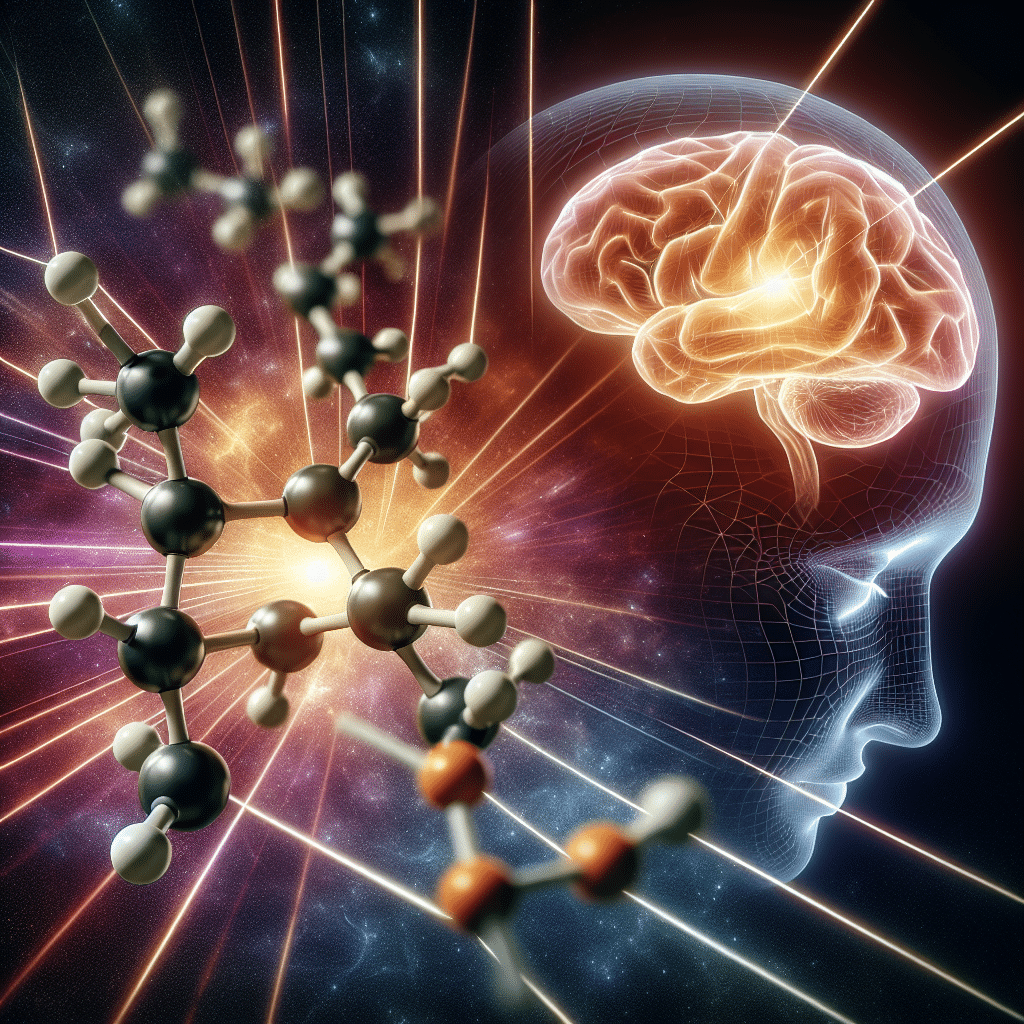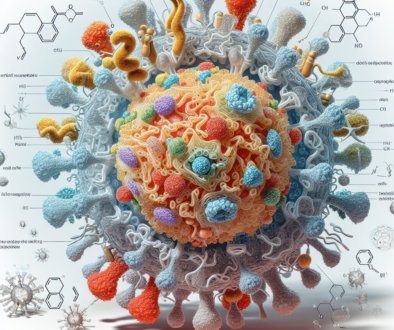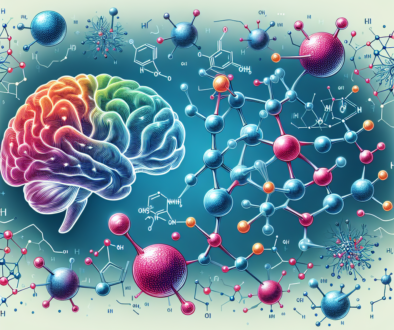Sialic Acid: Mastering Mood Regulation
-
Table of Contents
- Sialic Acid: Unveiling Its Role in Mood Regulation
- The Science of Sialic Acid
- Understanding Mood Regulation
- Sialic Acid and the Brain
- Neural Plasticity and Mood Disorders
- Sialic Acid and Neurotransmitter Function
- Case Studies and Research Findings
- Altered Sialic Acid Levels in Mood Disorders
- Animal Models and Sialic Acid Supplementation
- Implications for Treatment
- Pharmacological Interventions
- Dietary and Nutritional Approaches
- Challenges and Future Directions
- Conclusion
- Discover ETprotein’s Protein Products
Sialic Acid: Unveiling Its Role in Mood Regulation

Mood disorders affect millions of people worldwide, and understanding the underlying biological mechanisms is crucial for developing effective treatments. One lesser-known player in mood regulation is sialic acid, a sugar molecule with significant roles in the brain’s functioning. This article delves into the science behind sialic acid and its potential impact on mood regulation, offering insights into how this molecule could be the key to unlocking new therapeutic strategies.
The Science of Sialic Acid
Sialic acid is a term that encompasses a family of nine-carbon sugars that are typically found at the outermost end of glycan chains on the surfaces of cells and soluble proteins. The most common form of sialic acid in humans is N-acetylneuraminic acid (Neu5Ac). This molecule is pivotal in a variety of biological processes, including cell-to-cell communication, immune response modulation, and the functioning of the nervous system.
Understanding Mood Regulation
Mood regulation is a complex process involving numerous neurotransmitters, hormones, and other molecules that affect the brain’s biochemistry. Serotonin, dopamine, and norepinephrine are among the most well-known mood regulators. However, recent research suggests that sialic acid plays a significant role in modulating these neurotransmitters and influencing mood.
Sialic Acid and the Brain
The brain is rich in sialic acid-containing glycoproteins and gangliosides, which are essential for neuronal plasticity, synapse formation, and cognitive functions. Sialic acid residues on neural cell adhesion molecules (NCAMs) are particularly important for brain development and synaptic modification, processes that are closely linked to mood and behavior.
Neural Plasticity and Mood Disorders
Neural plasticity, the brain’s ability to change and adapt in response to experience, is a critical factor in mood regulation. Disruptions in plasticity have been associated with mood disorders such as depression and bipolar disorder. Sialic acid’s role in promoting plasticity suggests that it could be a target for therapeutic interventions.
Sialic Acid and Neurotransmitter Function
Neurotransmitters are chemical messengers that transmit signals across synapses from one neuron to another. Sialic acid residues influence the stability and function of glycoproteins involved in neurotransmitter release and reception, thereby affecting mood regulation.
Case Studies and Research Findings
Several studies have highlighted the connection between sialic acid and mood regulation. For instance, research has shown that individuals with mood disorders often have altered levels of sialic acid in their cerebrospinal fluid or plasma. Animal studies have also demonstrated that modifying sialic acid levels can affect emotional behavior and stress responses.
Altered Sialic Acid Levels in Mood Disorders
Patients with depression and bipolar disorder have been found to have different sialic acid levels compared to healthy individuals. These findings suggest that sialic acid metabolism could be disrupted in mood disorders, potentially contributing to their pathophysiology.
Animal Models and Sialic Acid Supplementation
Animal models of depression have shown that sialic acid supplementation can lead to improvements in mood-related behaviors. These studies provide a basis for exploring sialic acid as a novel treatment avenue for mood disorders.
Implications for Treatment
The emerging evidence on sialic acid’s role in mood regulation opens up new possibilities for treatment. By targeting sialic acid metabolism or the signaling pathways it influences, it may be possible to develop more effective therapies for mood disorders.
Pharmacological Interventions
Drugs that modulate sialic acid levels or its interactions with other molecules could offer a new class of antidepressants or mood stabilizers. Research into such pharmacological interventions is still in its early stages but holds promise.
Dietary and Nutritional Approaches
Since sialic acid is found in dietary sources such as dairy products and eggs, nutritional interventions could also play a role in managing mood disorders. Ensuring adequate intake of sialic acid through diet or supplementation might contribute to mood regulation.
Challenges and Future Directions
While the potential of sialic acid in mood regulation is clear, there are challenges to overcome. More research is needed to fully understand the mechanisms by which sialic acid influences mood and to develop targeted therapies. Future studies should also explore the interplay between sialic acid and other factors involved in mood disorders, such as genetics and environmental stressors.
Conclusion
Sialic acid is a critical molecule with far-reaching implications for mood regulation. Its role in neural plasticity, neurotransmitter function, and brain development positions it as a potential target for innovative treatments for mood disorders. As research progresses, sialic acid may emerge as a key to mastering mood regulation, offering hope to those affected by these conditions.
Discover ETprotein’s Protein Products
In the context of mood regulation and overall health, protein intake is also essential. ETprotein offers a range of high-quality protein products that can support your nutritional needs. Their organic bulk vegan proteins, including rice, pea, and various seed proteins, are non-GMO and allergen-free, making them suitable for a wide audience. Additionally, ETprotein’s L-(+)-Ergothioneine (EGT) products offer antioxidant properties that could further support brain health and mood regulation.
For those interested in incorporating high-quality proteins into their diet or product line, ETprotein’s offerings are worth considering. Their commitment to purity and customer satisfaction makes them a reliable choice for consumers and manufacturers alike.
About ETprotein:
ETprotein, a reputable protein and L-(+)-Ergothioneine (EGT) Chinese factory manufacturer and supplier, is renowned for producing, stocking, exporting, and delivering the highest quality organic bulk vegan proteins and L-(+)-Ergothioneine. They include Organic rice protein, clear rice protein, pea protein, clear pea protein, watermelon seed protein, pumpkin seed protein, sunflower seed protein, mung bean protein, peanut protein, and L-(+)-Ergothioneine EGT Pharmaceutical grade, L-(+)-Ergothioneine EGT food grade, L-(+)-Ergothioneine EGT cosmetic grade, L-(+)-Ergothioneine EGT reference grade and L-(+)-Ergothioneine EGT standard. Their offerings, characterized by a neutral taste, non-GMO, allergen-free attributes, with L-(+)-Ergothioneine purity over 98%, 99%, cater to a diverse range of industries. They serve nutraceutical, pharmaceutical, cosmeceutical, veterinary, as well as food and beverage finished product distributors, traders, and manufacturers across Europe, USA, Canada, Australia, Thailand, Japan, Korea, Brazil, and Chile, among others.
ETprotein specialization includes exporting and delivering tailor-made protein powder and finished nutritional supplements. Their extensive product range covers sectors like Food and Beverage, Sports Nutrition, Weight Management, Dietary Supplements, Health and Wellness Products, and Infant Formula, ensuring comprehensive solutions to meet all your protein needs.
As a trusted company by leading global food and beverage brands and Fortune 500 companies, ETprotein reinforces China’s reputation in the global arena. For more information or to sample their products, please contact them and email sales(at)ETprotein.com today.












